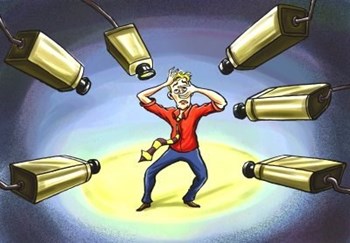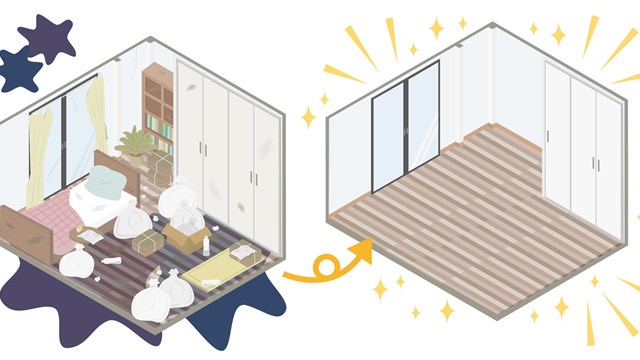
When it comes to the things that people value most, personal safety and security rank right at the top of the list. That's especially true in a day and age filled with ongoing anxiety over everything from identity theft to car jackings to terrorist attacks. All that most people want is to feel safe and secure, especially in their own homes.
How much security is too much security, though, in terms of privacy? Achieving that delicate balance between safety and privacy is the goal of every board and management team, and for the most part, say the experts, it's something that's being achieved quite well in buildings throughout the city.
Knowing the Options
Knowing the needs of a building and its residents should be the first step in determining what kind of safety and security plan will work best and prove most effective. "Security is a term used for many different items," says Dr. Mark Lerner, criminologist and owner of Manhattan-based EPIC Security Corp. "It can mean lighting, fencing, security personnel, closed circuit TVs (CCTVs), electronic alarm systems and electronic access control. Each type of residence has different needs. A gated community will have different needs than a high rise." Which means that every building needs its own individual security plan.
It's important that boards and management consult professional security advisors when devising their plan. Tim O'Brien, president of Criminal Intelligence Administration in Queens, says that effective plans are the ones that are multi-faceted, involving a good balance of personnel, well-written plans and procedures as well as technology. "You want a nice combination that's layered and overlaps, so that if one part fails, there's something else to back it up," he says.
Understanding the Options
For a significant number of buildings in New York City, security personnel are among the most popular solutions for solving the safety issue. Lerner's firm specializes in security guards. "September 11, 2001 was the date of the sea change in how people thought of security," Lerner says. "Right after 9/11, the use of security guards went up 25 to 30 percent overnight. People were asking for armed security guards, especially in buildings that felt they could be targets, places where foreign heads of state or political figures lived. In the six years since then, there has been a lessening in demand, but overall, there was probably a solid 10 percent increase in the use of guards."
While people may still fear the possibility of terrorist attacks, "the reality for apartment buildings and developments is the everyday stuff like vandalism, theft and muggings," Lerner says.
He adds that studies have shown that guards are a great deterrent against crime. "Criminals don't like to see a potential for confrontation," he adds. And for residents, the sense of security that comes from seeing security personnel guarding the front door every night when they arrive home from work goes a long way toward allaying fears for personal safety.
With guards, it's important to remember training, O'Brien says. Money is spent to recruit and pay good personnel, but the building or the organization managing the guards might not be expending enough resources on up-to-date training. "You have to understand, know threats and know what's out there," he says. "You can have ten guys in one building, but I'd rather have two guys who are sharp and know what they're doing."
For some buildings, electronic access control may take the place of a guard. The system requires residents to use a swipe card or key fob to enter the building. The benefit is that the system keeps track of all entries and exits from the building, making it harder for non-residents and potential criminals to gain access while simultaneously ensuring that if a crime does take place, the authorities will have a wealth of vital evidence with which to work.
While not quite as high-tech as electronic access controls and not as intimidating as a well-muscled security guard at the door, advanced lighting systems also provide an important safety option for buildings. "Criminals don't like to be seen lurking around," Lerner says. By placing lights in dark areas such as back doors, storage spaces and garages, potential thieves or other unsavory characters will be deterred.
Things like fencing and alarm systems, while of vital importance in gated communities or subdivisions in the suburbs, are not as popular in the city just because of the design of most high-rises or other multi-family dwellings.
One technology that many people show interest in is security cameras and closed circuit television, systems that have been growing and evolving in terms of sophistication and functionality. "There have been very rapid advancements in closed circuit monitors," Lerner says. "They've moved from video tape and analog recorders to color, Internet-based hard-drive recordings. People have become enamored of technology, especially when a board member can look into the lobby of his building from his home computer via the IP code of the camera."
Lerner, though, says that security cameras do not necessarily deter crime, although they still serve a very useful purpose. Much like electronic access systems, they can provide evidence to solve or stop crimes. "Banks are a good example," Lerner says. "Everyone knows they're on (closed circuit) television, but they still rob banks. Criminals aren't deterred by the idea that they can be seen."
O'Brien agrees. "Don't just throw technology at a problem because it's not going to go away," he says. "You could install a million dollar security system, but if there's no procedure or personnel behind it, it's not going to be effective."
Big Brother?
The idea of being watched might feel a bit odd to the average non-bank robber though. From what the experts say, however, when it comes down to a choice between feeling safe versus privacy, most people choose safety. "Some people don't like cameras because of privacy issues," Lerner says. "They say, 'we don't want to be like 1984 (the Orwell novel).'"
Sometimes residents will worry that the cameras might reveal things about them that they don't wish others to know—infidelities, perhaps, or sexual habits or business practices that might not always be on the straight and narrow. Those concerns, though, are most often muted by the wants and needs of the other shareholders or unit owners. "People always want more security, not less," Lerner says. "People may have some concerns over privacy issues, but I don't see those trumping security concerns."
Lerner cites Mayor Michael Bloomberg's proposed automobile fee, which would charge drivers for bringing their cars into Manhattan. The traffic congestion proposal would mean the installation of security cameras throughout the city—cameras which could track the moves of millions of people in an effort to capture license plate numbers for billing purposes. That theoretical invasion of privacy does not seem to phase most New Yorkers. "People are more upset about the fee," Lerner says.
Knowing the Law
Even if residents seem apathetic, how does a board know they haven't crossed the line in terms of privacy laws and rights? There are certain things to avoid, especially in terms of camera installation. "Don't install cameras in common hallways where the camera might have a view into someone's apartment," O'Brien says. "That's a big issue. That person would have a case for privacy invasion."
O'Brien also advises against installing any cameras that might have an audio recording function. Recording someone's conversations is illegal with regard to both federal and state law, he says.
It's also advisable to avoid installing cameras "anywhere where there is an expectation of privacy," O'Brien says. That includes restrooms, employee locker rooms, even break rooms. "Those areas should be off limits."
When devising their security plans, boards and management need to ask themselves certain questions, says attorney David Berkey of Manhattan-based Gallet Dreyer & Berkey LLP. "Are the security measures reasonable ones? Or does it go too far so that it exceeds the law?" Two areas where that law might be exceeded: if there is unauthorized filming of a person in a place where they have that expectation of privacy or if a person is filmed and then that image is used later for commercial purposes.
In general though, the law will look favorably on any scenario in which it is deemed that the board acted reasonably and with the best interests of the building and its safety in mind. "If the system is designed to give security to the building as a whole, then it will likely be upheld," Berkey says. "If a body (in this case the board) acts deliberately and in good faith, the courts won't second guess their judgments."
As with anything, communication is important. When installing or adding new security measures, management should let residents know through a memo or the building newsletter. "They should let residents know that the building is taking steps to install these measures for their protection and for the benefit of the whole building and all the unit owners," Berkey says.
And in most cases, the residents will be happy to hear the news. "Most buildings will tell residents that they're doing something because it was the residents who were urging them to add more security in the first place," Lerner says.
There might still be dissenters or folks in the building who are unhappy about things such as security cameras or guards, but there is simply not much those individuals can do. "You're going to have hard-liners who just don't want it," O'Brien says. The best thing to do is just reassure them that "the cameras (and other measures) are there for them and for their safety."
In the end, Berkey says, there are usually very few issues. "It doesn't cause problems as a rule once the security measures are in place and people get used to them." Because, when it comes to questions of security, most people just want to feel safe in and around their homes.
Liz Lent is a teacher and freelance writer living in Bloomfield Hills, Michigan.









Leave a Comment